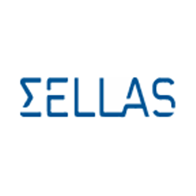SLS Profile

SELLAS Life Sciences Group, Inc. is a late-stage biopharmaceutical company dedicated to developing innovative cancer immunotherapies for a range of oncology indications in the United States. The company's lead product candidate, galinpepimut-S (GPS), is a targeted cancer immunotherapeutic that focuses on Wilms tumor 1 (WT1). GPS is currently undergoing Phase III clinical trials for the treatment of acute myeloid leukemia (AML) and Phase 1/2 trials for ovarian cancer. By harnessing the body's immune system to target WT1, a protein overexpressed in several cancers, SELLAS aims to improve therapeutic outcomes for patients with these challenging malignancies.
In addition to GPS, SELLAS is advancing nelipepimut-S, an immunotherapy targeting the human epidermal growth factor receptor 2 (HER2). Nelipepimut-S is currently in Phase 2b clinical trials for early-stage breast cancer. This therapy aims to address HER2-positive tumors, which are often associated with aggressive disease and poorer prognosis. The development of nelipepimut-S reflects SELLAS's commitment to addressing unmet medical needs in oncology by targeting specific cancer-related antigens.
SELLAS Life Sciences is also engaged in a strategic collaboration with Merck & Co., Inc. to evaluate the efficacy of GPS in combination with Merck’s PD-1 inhibitor, pembrolizumab. This partnership involves a Phase 1/2 clinical trial exploring the combination therapy across multiple cancer indications, including both hematologic malignancies and solid tumors. The collaboration highlights SELLAS's strategic approach to combining novel immunotherapies to potentially enhance treatment responses and broaden the therapeutic impact.
Founded in 2012, SELLAS Life Sciences Group is headquartered in New York, New York. The company’s focus on late-stage clinical development underscores its dedication to bringing forward new treatment options for cancer patients. With a robust pipeline of targeted immunotherapies and strategic industry partnerships, SELLAS is well-positioned to make significant contributions to the field of oncology and address critical gaps in cancer care.
|

